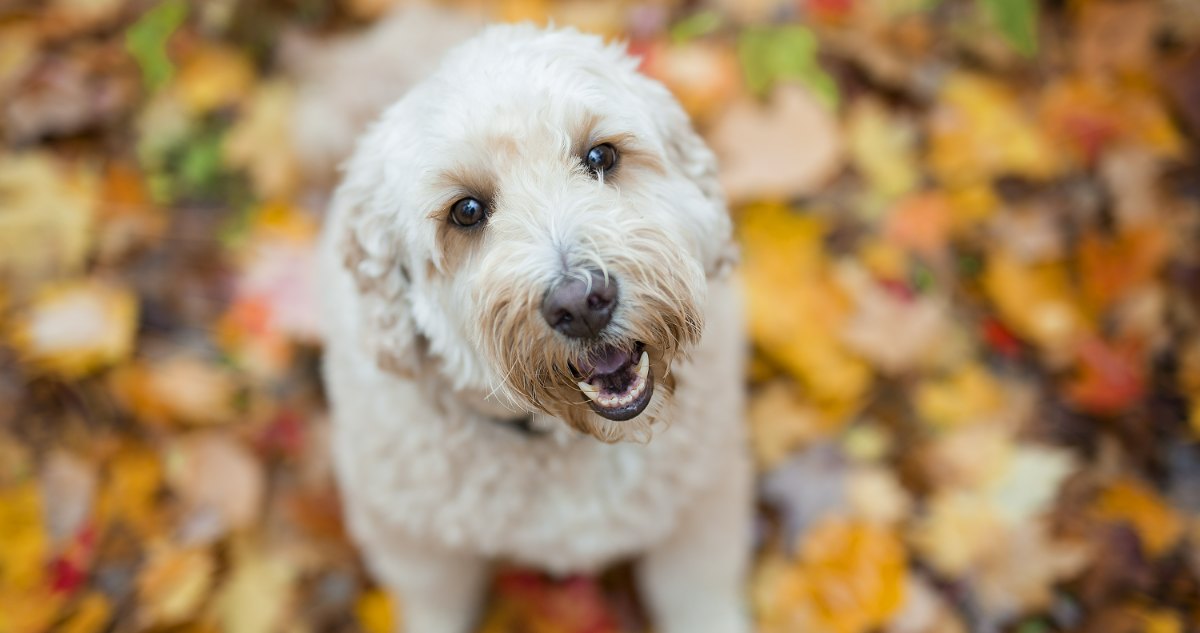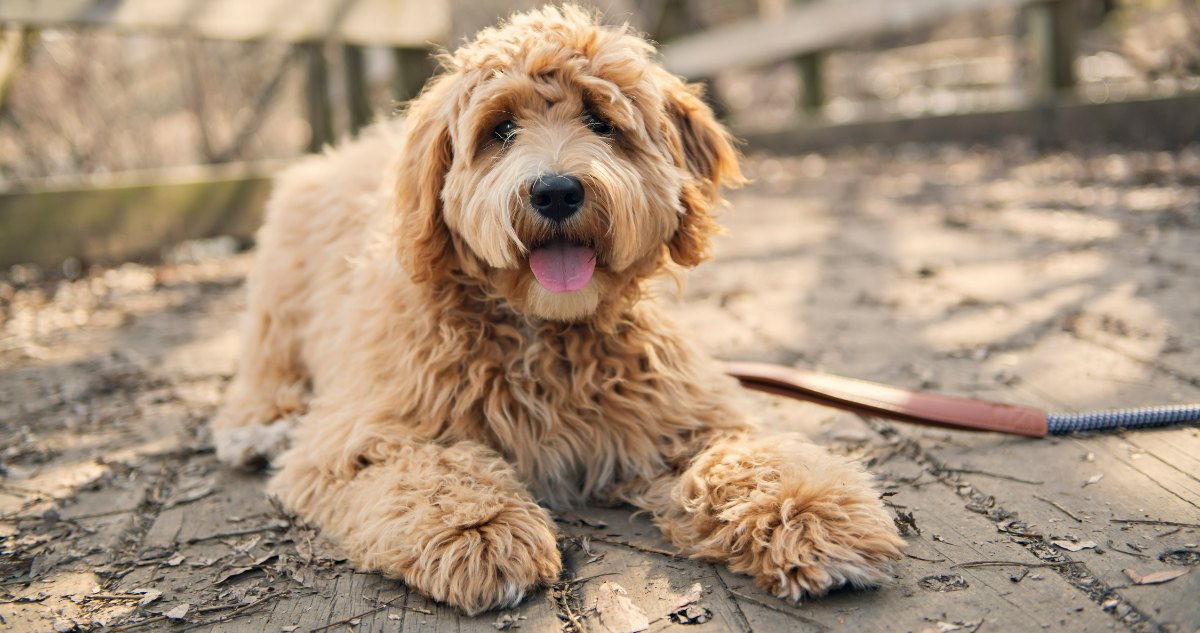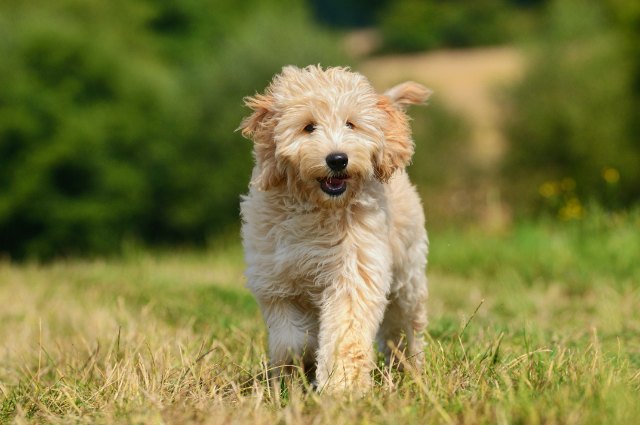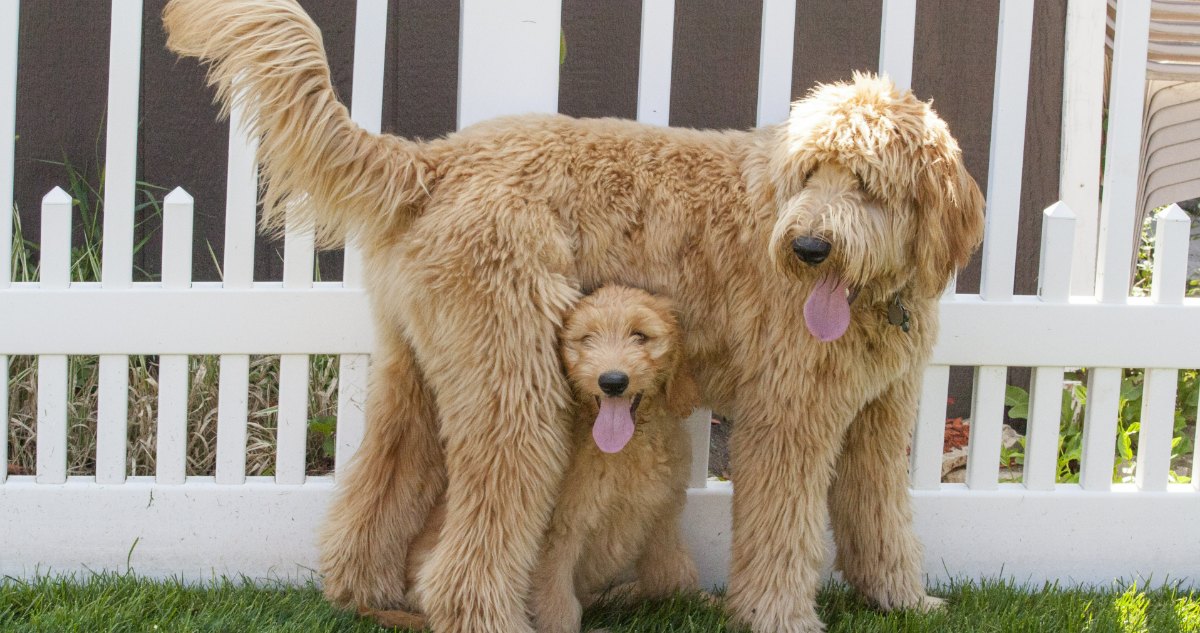Goldendoodles
Showing all 4 results
Shelter Dog Meal Donation Count:
Showing all 4 results
Goldendoodles are affectionate, intelligent, and versatile dogs that make excellent family pets. Their friendly disposition and low-to-shedding coats have made them particularly popular among families and individuals seeking a loyal and engaging companion.
Goldendoodles are highly sociable and thrive on interaction with their families. They are excellent companions for outdoor activities and enjoy relaxing indoors. Their intelligence makes them great candidates for various roles including therapy and service dogs.

The Goldendoodle was first bred in the 1990s, following the trend of creating poodle hybrids for their hypoallergenic qualities. The breed has since gained popularity for its temperament and low-shedding coat.




Health issues can be inherited from both parent breeds, including hip dysplasia, heart conditions, and eye disorders. Regular check-ups and vaccinations are essential for maintaining good health.
Requires regular grooming to prevent matting, including brushing and professional grooming every few months. Bathing: Monthly baths are generally sufficient, but frequency can vary based on lifestyle and coat type.
Need daily exercise such as walks, play sessions, or agility training. Enjoys mental challenges like puzzle toys and obedience training.
Known for their intelligence and eagerness to please, Goldendoodles respond well to training. Early socialization and consistent, positive reinforcement training methods work best.
Requires a balanced diet appropriate for size, age, and activity level. Consistent feeding schedule with portion control to prevent overeating.
The Goldendoodle is a delightful breed that brings joy and companionship to their families. Their intelligence, affectionate nature, and hypoallergenic coat make them a popular choice for many. A Goldendoodle can be a wonderful addition to any household with proper care, training, and love.
While being aware of these potential health issues is important, remember that not all Goldendoodles will experience these problems. Genetic testing, regular veterinary care, and a healthy lifestyle can greatly contribute to a Goldendoodle’s overall health and longevity.
The iHeartDogs Free Rx Discount Card Program is a pet prescription discount card that can help you save money on your furry friend’s medications. The card is free to sign up for, and you can use it at participating pharmacies nationwide. To use the free program, simply show the card to your pharmacist when you pick up your pet’s prescription. The pharmacist will then scan the card, and you will receive a discount on the price of the medication.LEARN MORE
The annual cost of caring for a Goldendoodle varies based on location, the dog’s size and age, and individual health needs. However, I can provide a general breakdown of the expenses to give you an idea:
Total Estimated Annual Cost:
$3200 - $8300
It's important to note that these figures are estimates and can vary. Also, the first year of owning a dog can be more expensive due to one-time costs like spaying/neutering, initial vaccinations, and training. Regular budgeting for your dog's needs and an emergency fund for unforeseen costs are essential for responsible pet ownership.